Samsung Galaxy S23 Ultra review: Photo and video take center stage
Samsung’s Ultra branding is typically reserved for devices that pack as many high-end features as you can fit in a single gadget. The Galaxy S23 Ultra starts at $1,200 and has a big, beautiful OLED screen, a new chip with even better performance, improved cameras and some revamped software. And, of course, there’s a built-in S Pen for all your drawing and notetaking needs. So while that sentiment still generally rings true for the new S23 Ultra, the company’s latest flagship phone doesn’t look or function all that differently from last year’s.
Display and design: You’ll need to squint to spot the changes
While the standard S23 and S23+ got a facelift this year, the Ultra appears to be a carbon copy of its predecessor — unless you look real close. You get a big 6.8-inch AMOLED display with a 120Hz adaptive refresh rate and a 3,088 x 1,440 resolution. And it looks awesome, even if those specs haven’t changed much from the previous model. Colors are dazzling and brightness tops out a stunning 1,750 nits, with a typical max brightness of around 1,000 nits in my testing.
Pros
- Brilliant display
- Built-in S Pen
- Great performance
- Improved cameras
- Long battery life
Cons
- Pricey
- Largely unchanged design
- No new S Pen features
The rest of the phone is a nice combo of Gorilla Glass Victus 2 and Samsung’s durable Armor Aluminum. There are a few minor tweaks to the chassis, including slightly less curved edges on the screen to help prevent accidental touches. That said, I never really had an issue with that on last year’s phone. The S23 Ultra’s frame is also a bit flatter, which makes the whole thing feel boxier. And thanks to Samsung’s continued focus on sustainability, small elements of the phone like the lock button are made from ocean-bound plastic. But that’s about it. So, unless you’re already familiar with the S23 Ultra’s new color options (which include cream, lavender, green and black), even when you look at the S22 Ultra and S23 Ultra side-by-side, it’s almost impossible to tell them apart.
Performance: New chip means more speed
The S23 Ultra is one of the first phones on the market to feature a Snapdragon 8 Gen 2 chip. However, Samsung didn’t stop there. It worked with Qualcomm to create a custom version of the processor just for Galaxy phones. So what does that get you? Simply, a wealth of speed. In tests, the S23 Ultra posted multi-core scores in Geekbench 5 that were 40% higher than what we got from last year’s phone. That’s a huge jump, so it probably isn’t a surprise when I tell you that everything feels smooth – apps, games, you name it.
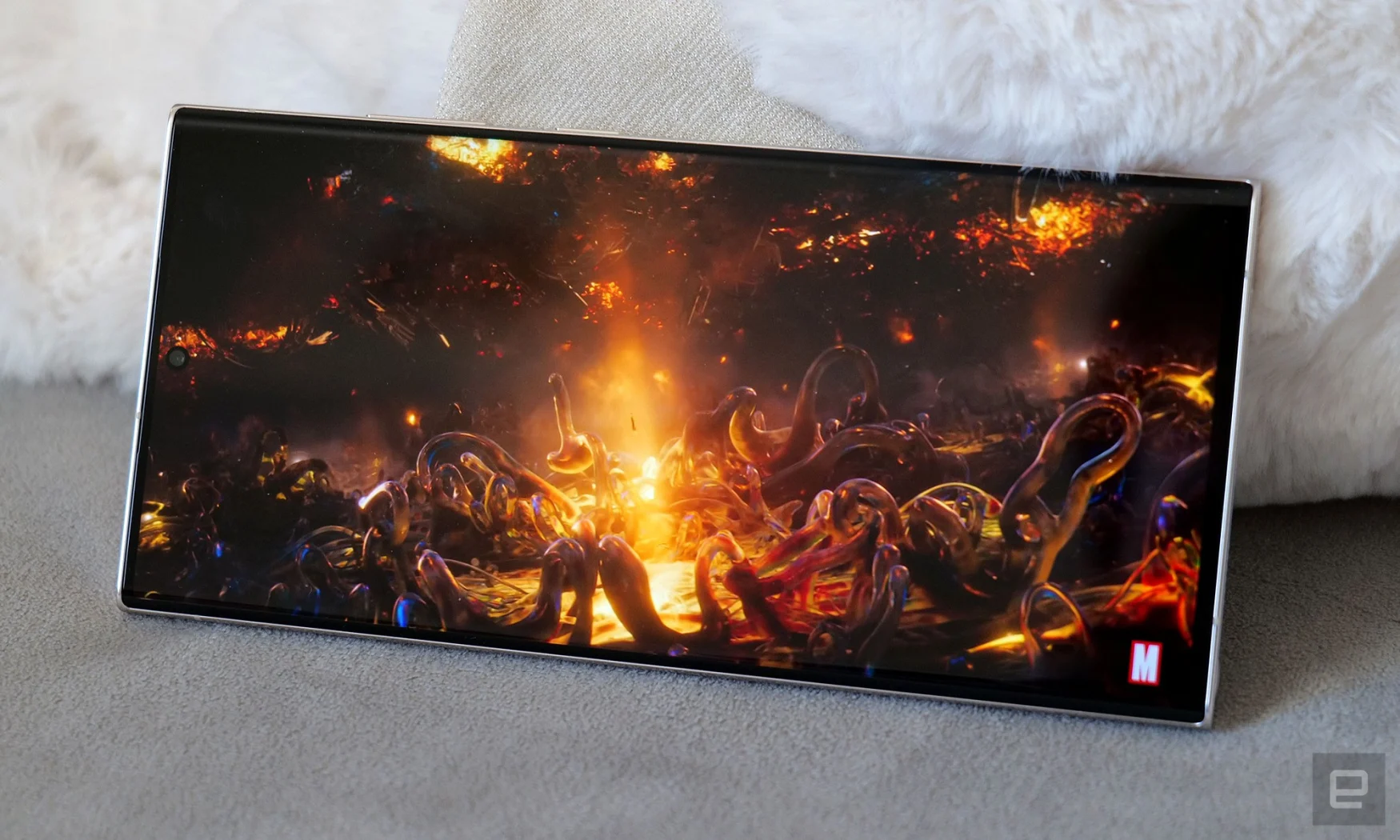
Now I should mention that the custom Snapdragon 8 Gen 2 for Galaxy platform that Samsung uses has a clock speed that’s only around 150 MHz higher than the standard chip, which honestly, isn’t a difference most people (including me) can discern in normal use. However, one of the biggest changes for 2023 is that every version of this year’s Ultra will feature a Snapdragon chip, so people outside North America won’t be saddled with a less powerful Exynos processor like in previous years. The base model features 8GB of RAM and 256 GB of storage, but if you jump to the 512GB or 1TB storage options you get 12GB of memory.
Software: One UI 5.1 is nice, but not essential
Alongside the debut of the Galaxy S23 line, Samsung is also introducing One UI 5.1 which features some handy tweaks and customizations. That said, a number of additions like the new personalization options on the lock screen or a wider palette for the UI’s accent colors are sort of things we’ve seen before in iOS 16 or Android 13’s Material You. You can even do things like add info to the lock screen so it’s easier for people to return your device to you if you lose it. However, out of the box, our review unit came with a message that said “Hi help me” which seems more like a cry for attention than an attempt to provide assistance.
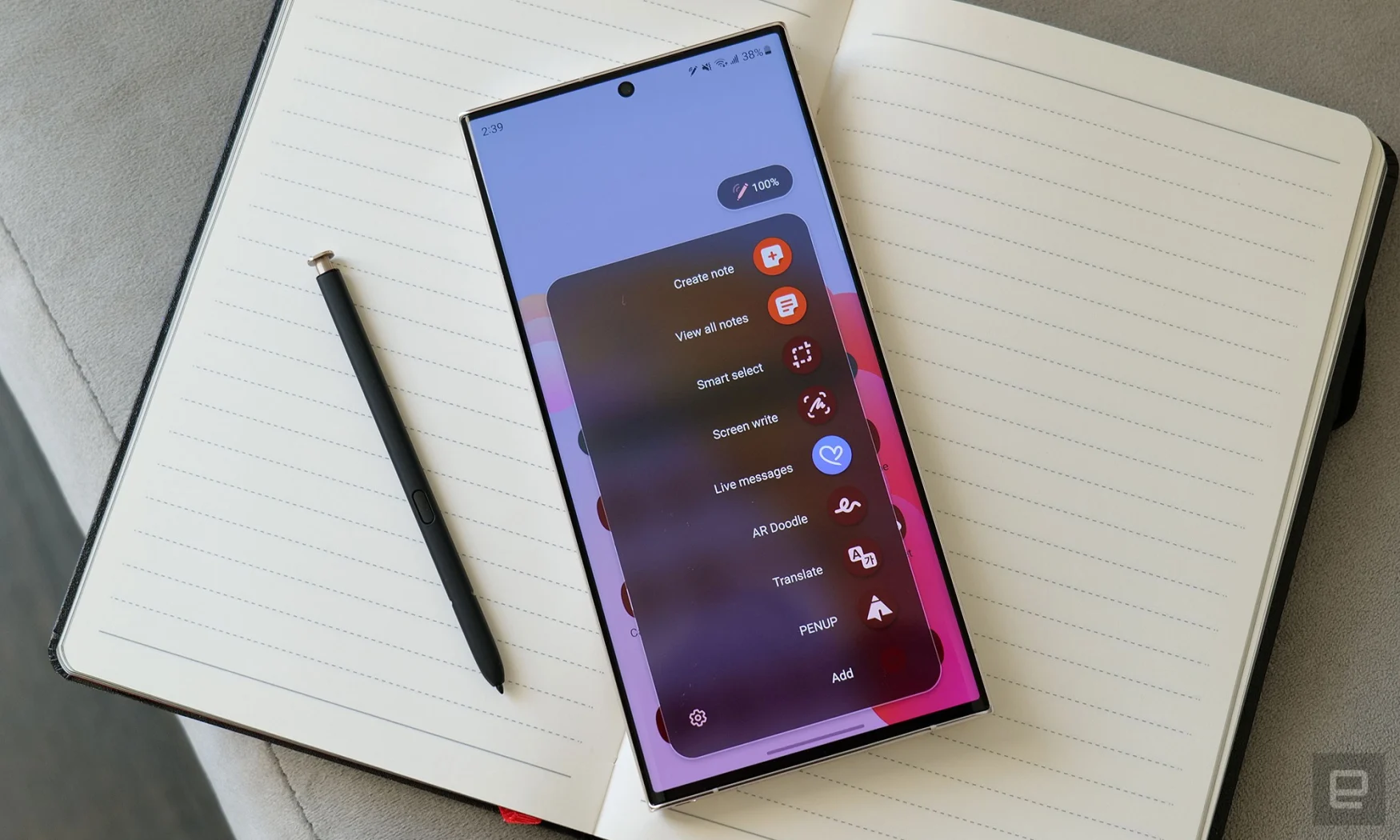
Samsung is also making it easier to create custom stickers from your photos, which you can do by simply long pressing on an object and then dragging it to another app for easy sharing. Unfortunately, some subjects are easier to clip than others. Faces and animals tend to work relatively well, but other things like flowers can often end up looking a bit off, so your results may vary. There’s also a new Modes and Routines section in the menu that lets the phone adjust multiple settings for specific activities like exercising or relaxing. But aside from the Sleep mode option, I didn’t find this new functionality all that useful. When I work out, all I need to do is find some good music and I’m ready to go.
Unfortunately, while the S23 Ultra comes with an S Pen and a handy storage slot, there aren’t really any new notetaking or drawing features, which is kind of a shame. Samsung’s top-end handset is still unmatched when it comes to stylus support on phones, so I wish there was something, anything new to mess around with. But I must admit even I’m struggling to think of a major feature I’d really like to see added.
Cameras: More pixels better?
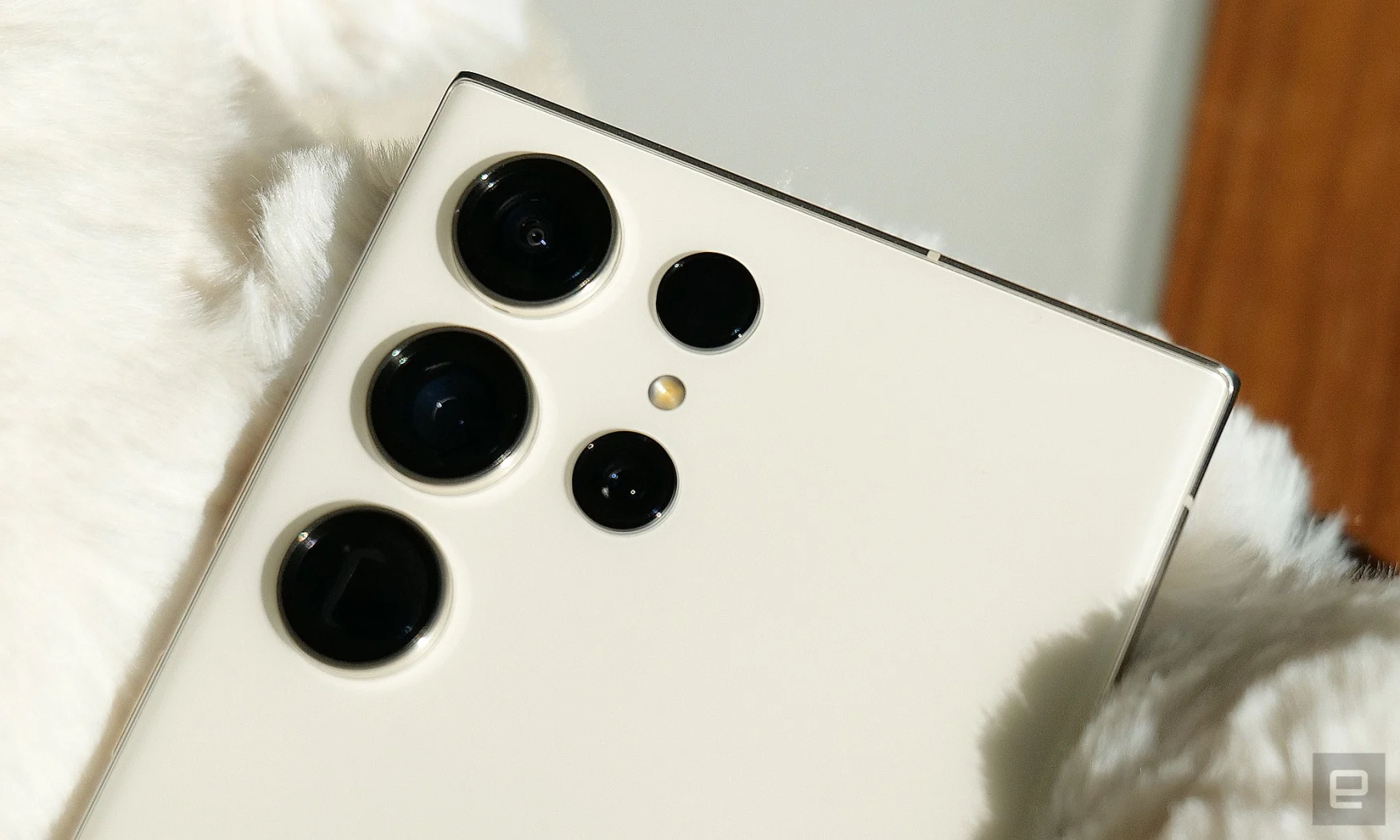
The biggest upgrade on the S23 Ultra is its new 200MP main sensor, which features twice as many pixels as before. At Samsung Unpacked, the company showed off snippets of short films from not one, but two, big-name directors to really drive home the phone’s new cinematic capabilities. It sounds impressive, but in practice, it takes a bit of effort to really make the most of that new sensor.
In normal use, the S23 Ultra uses 16-to-1 pixel-binning to help gather more light and produce sharp, colorful images without the need for extra-large file sizes. And in most situations, it produces better-looking pics too. When I used the S23 Ultra to shoot photos of some pizza (which was extremely tasty might I add), images taken using the default 12MP mode featured more accurate colors and better details than those captured with the sensor’s full 200 megapixels. In the right conditions activating the sensor’s full resolution may allow you to capture finer textures on some subjects, but you’ll need to zoom in to see them.
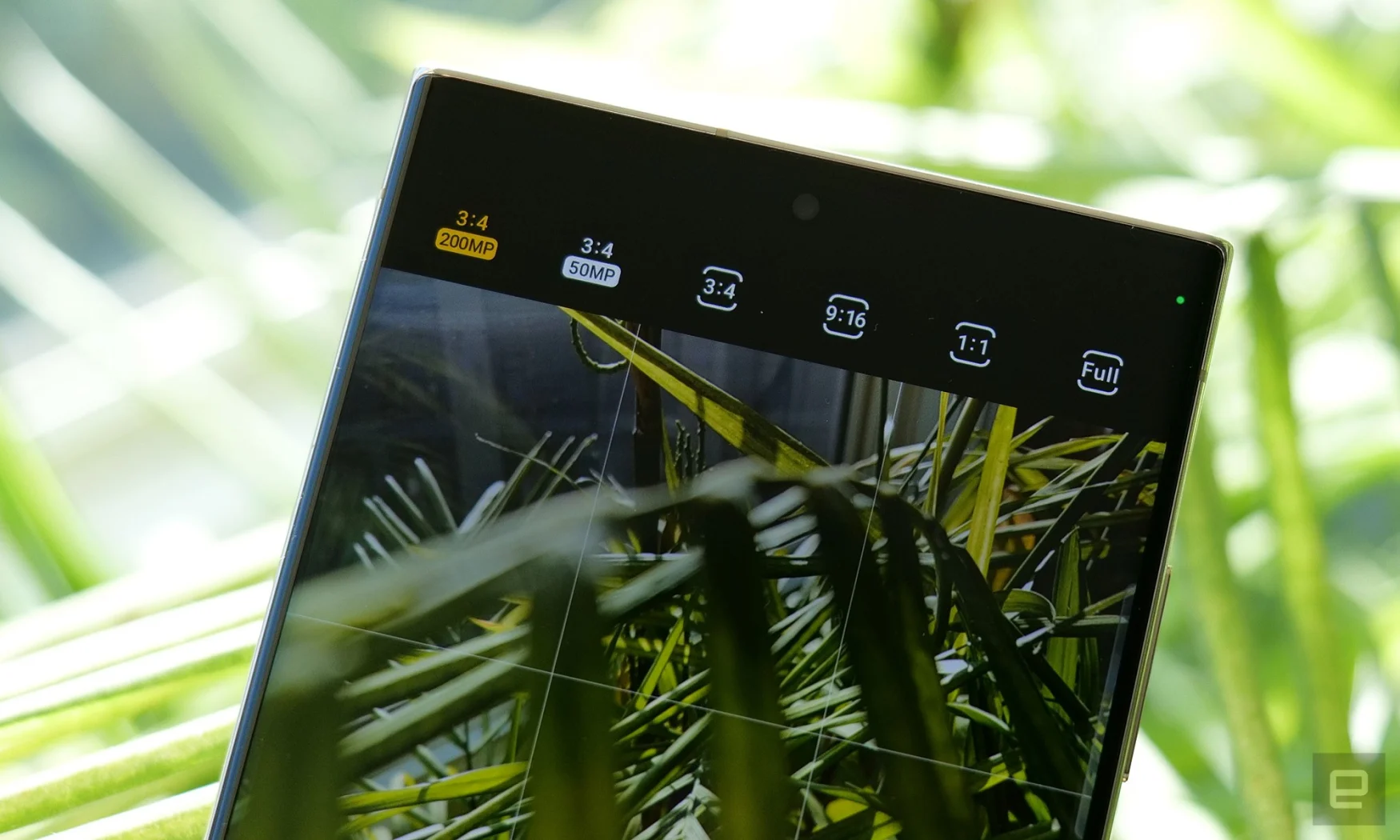
Now part of this is because it seems Samsung’s object detection and optimizer doesn’t work in 200MP mode, but there were also noticeable differences in white balance and sharpness. On one hand that makes sense because pro photographers often prefer images with flatter color profiles which makes post-processing a bit easier. But that also means unless you’re editing everything you shoot in an app like Lightroom or Photoshop, you’re better off sticking with the regular 12MP setting. This is what I mean when I say you need to work to get the most out of the S23’s new camera, and it applies to other stuff like Samsung’s Expert Raw app too.
Designed for more advanced photographers, Expert Raw has a much wider array of settings and tools to tweak every aspect of your shot, from shutter speed, to exposure compensation and more. You also get a new astrophotography mode so you can take better pics of the night sky, that is unless you live in the city like I do. That’s because between light pollution and cloudy skies, I couldn’t get a single photo with the astrophotography mode that I was really proud of. And I even used a tripod to make sure things were super stable.
Gallery: Samsung Galaxy S23 Ultra camera samples | 16 Photos
Gallery: Samsung Galaxy S23 Ultra camera samples | 16 Photos
It’s a similar story when it comes to video, where the S23 Ultra’s improved OIS is a welcome addition for reducing shakes and vibrations while recording. But then there’s the new 8K/30 fps mode (up from 8K/24 fps last year) which is nice because there’s no more 2X crop like you got on the S22 Ultra. But at the same time, who records home movies in 8K, let alone has the proper display to watch those clips at full resolution? Sure, it’s nice to be able to crop in when you want some extra detail. But this feels like overkill, especially when you consider that the file size for a two-minute 8K/30 FPS video is over one gigabyte, which means you’re gonna run out of storage real fast.
At least when it comes to selfies, the phone has a new 12MP camera with dual pixel autofocus, and its pics look great despite a sensor that actually features a lower resolution than on the previous model. The 12 MP ultrawide cam and the two telephoto lenses (3x and 10x) are largely the same, which feels like a missed opportunity because that 10x optical zoom is still my favorite lens on the phone.
Battery life: Just great
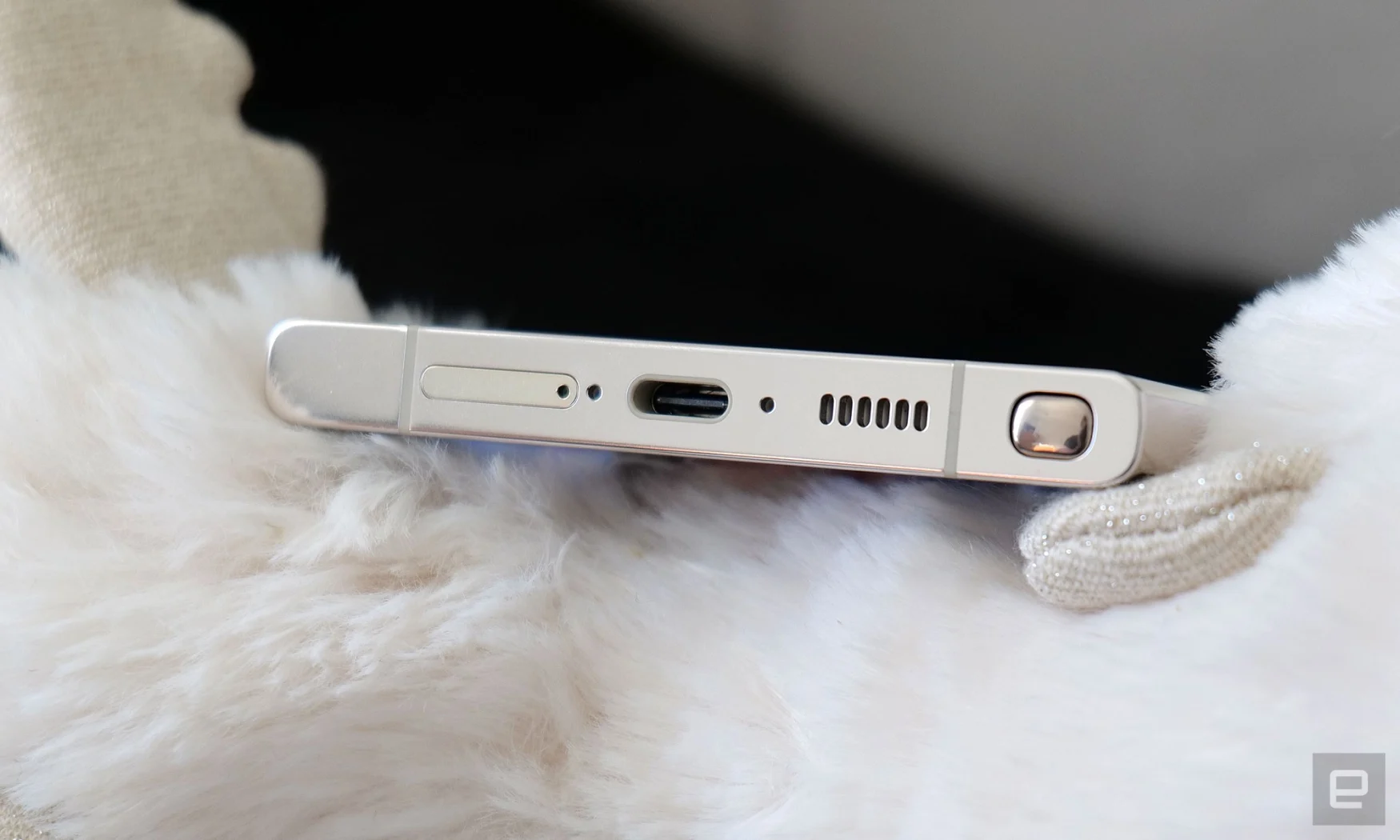
While the S23 Ultra’s smaller siblings both got upgrades in battery capacity, Samsung’s flagship stayed pat at 5,000 mAh. But that’s ok because there’s plenty of juice to go around. On our video rundown test, the S23 Ultra lasted an impressive 19 hours and 26 minutes, which is similar to the OnePlus 11 (19:45), though not quite as good as the iPhone 14 Plus’ 21:17. And that was with the phone’s adaptive refresh rate turned on.
In the real world, you’re looking at more than all-day battery life. Even on a day when I was doing heavy benchmarking and playing NBA All-World (which really gulps electrons due to constant use of GPS), I still had 25% battery left at the end of the day. And on days with more moderate usage, I often had 40% or more in the tank when midnight rolled around.
All this means you don’t really need to worry about the phone dying during the day, which is a good thing because that gives the S23 Ultra leeway to donate some charge to other devices via Samsung’s Power Share feature (aka reverse wireless charging). And with 45-watt wired charging, you can refuel the phone in a jiffy too.
Wrap-up
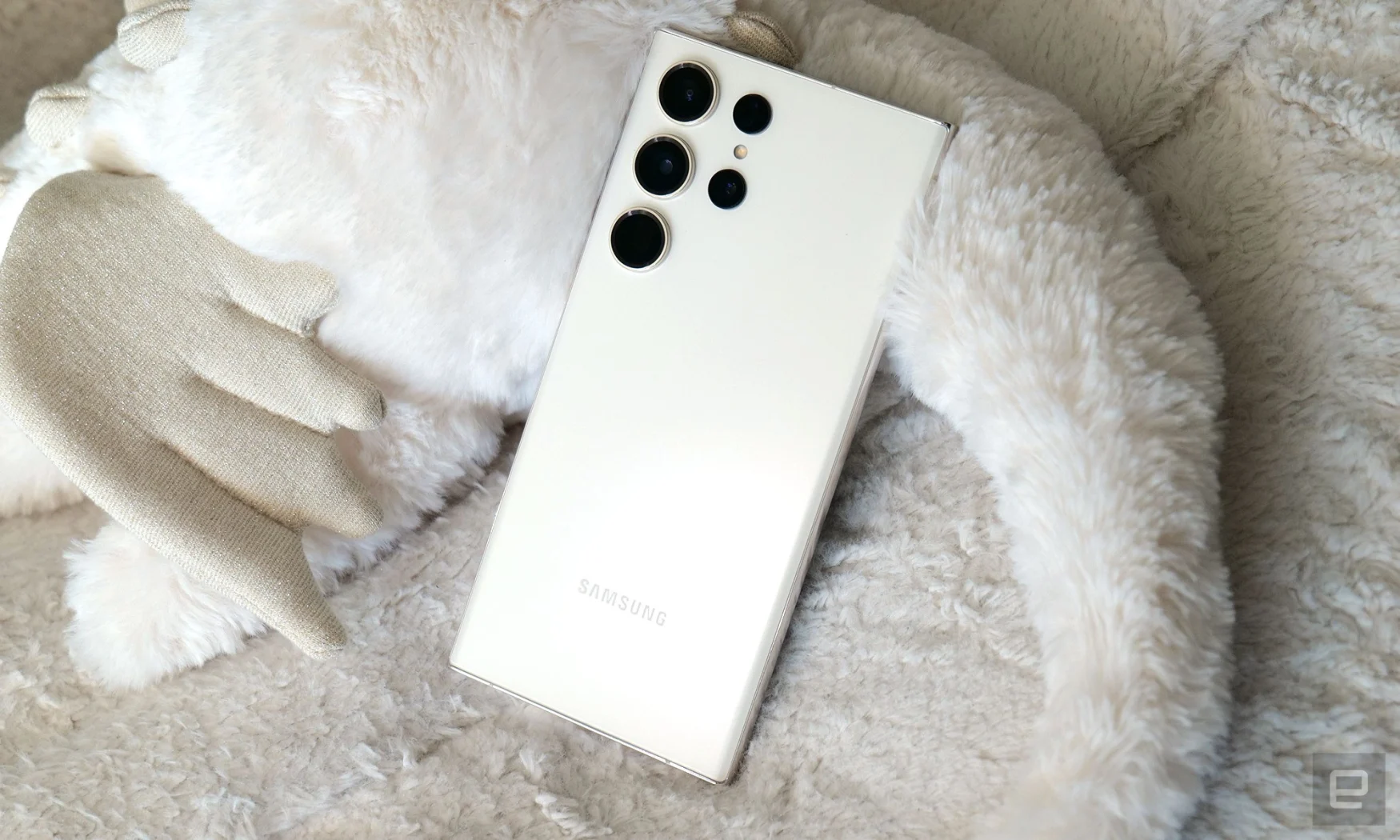
The tricky thing about recommending the S23 Ultra is that it’s everything a super premium phone should be. It’s got a gorgeous display, a great build and more power than you know what to do with. However, starting at $1,200, it’s also really expensive and it’s not that much better than last year’s offering. I have no doubt you can film Hollywood-grade movies using its new 200MP sensor. But it’s important to remember that even in Samsung’s promos, we’re talking about a crew with decades of experience, not to mention additional equipment like external mics, camera cages, gimbals and more. The S23 Ultra’s camera has tons of potential, but it takes more than just a casual familiarity to make those features glow.
For those wondering if they should trade in their current handset after only a year: No, it’s just not worth it. If you’re simply looking for a premium device and don’t care about taking notes with a stylus, I’d argue that the Pixel 7 Pro is a better value. But if you have an older phone and are looking for a major upgrade, the S23 Ultra is unlike any other Android phone on sale today. And with its fancy new sensor, Samsung’s latest flagship might be the closest thing you can get to a pro-grade camera in a phone, just as long as you’re willing to polish your content in post.
























